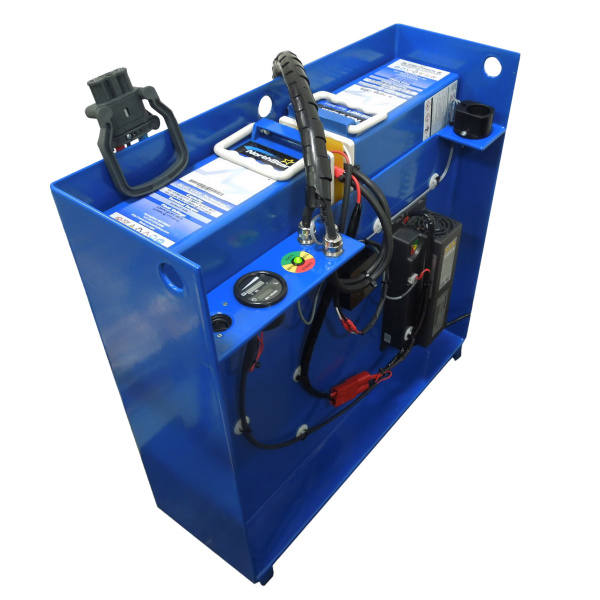 Darrell Kong |
Darrell Kong is principal of Cradle Mountain Advisors, an adviser to transportation industry stakeholders wanting to transition to electrified vehicle fleets and charging infrastructure.
Nobody likes combustion exhaust fumes. They're harmful to the lungs, irritating to the eyes and generally terrible for the environment. On top of all that, traditional forklift engines operate at high decibel volumes that can mentally and physically drain a driver's energy and alertness over the course of a standard work shift. It's not surprising to see a growing number of cargo operators integrating electric forklifts and other e-cargo handling equipment (e-CHE) into their fleets.
In addition to the environmental benefits, battery electric technology also provides economic advantages over diesel and liquified propane gas (LPG) engines. Operating and "fuelling" costs are significantly lower. Where it might cost USD6,000/year to run a diesel forklift, a comparable e-forklift may cost less than USD1,000/year. Kilowatts are cheaper than gallons! And with fewer moving parts than traditional combustion engines, battery electric vehicles require much less annual maintenance - in the order of 70% less per year than a diesel-powered forklift.
But it's not all zero emission nirvana with e-forklifts. CAPEX can be approximately 15-35% higher when buying e-forklifts. To be able to operate extended shifts, owners would need to purchase additional replaceable batteries that can run to USD5,000 a pop. E-forklift prices will gradually decrease as the technology improves and reaches scale economies, but the current price difference is significant. Plus, many e-forklifts can't be exposed to extreme weather and can only operate indoors. There's not much that can be done to change the weather outdoors, but there are several states such as Oregon, New Jersey and California that have implemented programs to help on the financial side of buying e-forklifts.
There's a great deal of anticipation in the logistics industry surrounding President Biden's proposed USD2 trillion infrastructure plan because it includes a USD174 billion allocation to encourage more battery electric vehicle purchases and charging infrastructure construction. Rather than wait to see when and in what form the President's plan is approved, forklift operators can access funding programs through the respective air quality management divisions of their state governments.
 Incentives for switching to electric |
For over 20 years, California has led the nation with clean emissions programs and continues to spur electrification of multiple vehicle and asset classes. But it is not isolated in its push to lower carbon emissions. In July 2020, 15 states and the District of Columbia signed a memorandum of understanding to assert their commitment to phase out diesel fuel vehicles and move towards battery electric and other clean emissions technologies.
There are several different financial incentives with slight variances in funding structure, application process and compliance requirements. Some are intended to lower purchase prices while others generate an ongoing revenue stream to offset forklift operating expenses. In certain circumstances, funding awards from the various programs can be combined to finance the same project. Some of these programs require operators to retire diesel engine equipment which are then replaced with a new e-forklift.
While the specific scope (eligible vehicle/infrastructure types), scale (amount of funding available) and compliance requirements will vary from state to state and budget year to budget year, the general categories are:
Vouchers: Pre-approved equipment/infrastructure may qualify for funding equivalent to a point of sale discount (eg. In California, up to USD200K depending on e-forklift manufacturer/model). Several states provide rebate and tax credit programs that operate similarly to voucher programs which have the advantage of offering a "cash on hood" incentive.
Grants: Upon delivery of vehicles/equipment or construction of charging infrastructure, these programs will reimburse applicants a percentage of their capital expenses (eg. The Carl Moyer Program could offer up to 80% of eligible costs depending on equipment vehicle class and up to 75% of charging infrastructure construction expenses).
Energy Credits: ZEV charging infrastructure and battery electric fleet vehicles/cargo handling equipment can qualify to generate Low Carbon Fuel Standard (LCFS) credits in certain states which can be sold to offset operating costs (eg. a forklift operating for 12,000 kWH would generate at least USD2,300 in annual credit value).